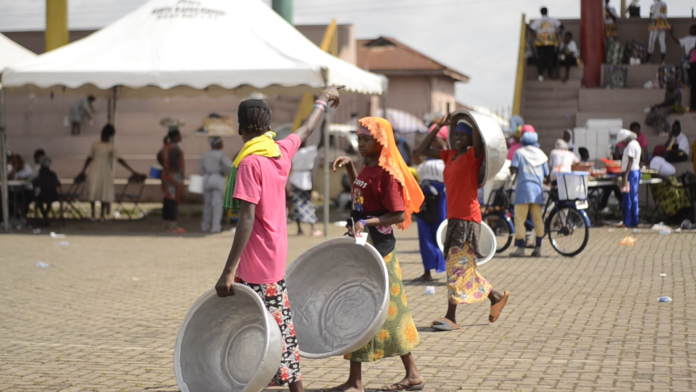In the Ashanti Region of Ghana, female head porters are seeking access to higher education to combat the sexual, economic, and verbal abuse they face in society.
Many of these young women have faced immense challenges and are looking for ways to contribute to the development of their communities.
Take for example, Salah Abudu, a 24-year-old head porter who dropped out of school at the age of 15 due to financial difficulties. After facing the possibility of child marriage, Salah migrated to Accra to improve her life but found herself sleeping on the streets and battling diseases. She and her counterparts carry goods on their heads in large aluminum pans, migrating from the Northern and Upper West Regions to Southern Ghana in an attempt to escape poverty and harmful practices such as child and forced marriages.
Unfortunately, these head porters face some of the worst aspects of urban life, including sexual exploitation and economic abuse. Many of them are becoming teenage mothers as a result of sexual exploitation. In addition, they often face cheap labor and unfair payment practices, making their already difficult lives even more challenging.
The Office of the National Population Council finds teenage pregnancy among head porters to be a worrying concern and states that they are major contributors to overpopulation in the country. A 2018/2019 mapping exercise by the Ministry of Gender, Children, and Social Protection estimated that there are more than 100,000 head porters nationwide, with more than 85,600 working in the Greater Accra Area and 22,500 in the Ashanti Region.
However, there is hope for these young women. Some are looking to access higher education, like Salah Abudu, who is a final-year student at the University of Ghana, Legon, thanks to the support from the United Nations Fund for Population Activities (UNFPA). This organization aims to ensure that every pregnancy is wanted and every childbirth is safe, and to fulfill the potential of young people like Salah, Beulah, and Elizabeth.
Non-governmental organizations are also stepping in to create educational and business opportunities for marginalized head porters and address the challenges they face. Despite the legal protections in place against child marriage, it still occurs in some communities, especially in the North, highlighting the need for education and skills training for these girls.
The National Population Council plans to manage overpopulation among the head porters through sexual reproductive health education. They aim to ensure that these vulnerable women and girls have access to comprehensive programs and interventions to improve their lives.
The stories of these young women highlight the importance of recognizing women’s rights as indispensable to development and ensuring that the most vulnerable ones, such as the head porters, are given the support they need to thrive.

